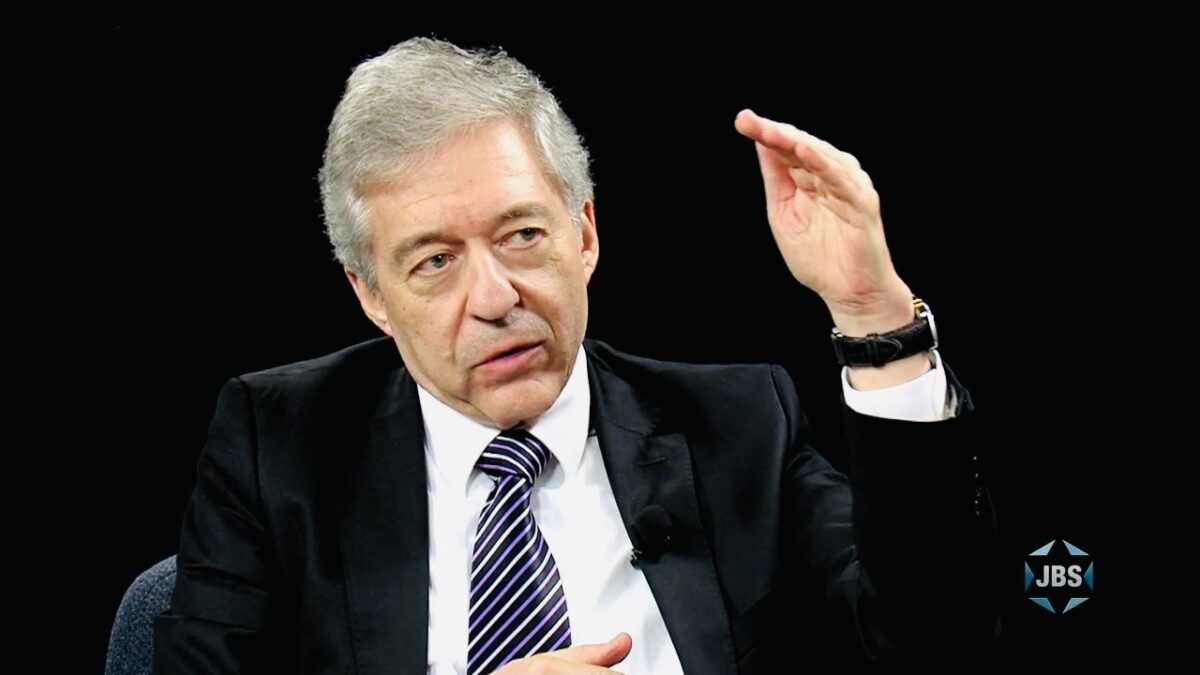A former Israeli cabinet minister and a Palestinian from a prominent Palestinian family are promoting a two-state solution in the form of a confederation between Israel and a future Palestinian state.
Yossi Beilin and Hiba Husseini discussed their plan in a Zoom talk on March 21 sponsored by Americans for Peace Now.
As Israel’s deputy foreign minister, Beilin played a key role in launching the 1993 Oslo peace process. During his political career, he was also the minister of justice and the minister of economy and planning. Currently, he is president of a consulting company, Beilnik International Affairs.
Hailing from a family that has been at the center of the Palestinian national movement for the past century, Husseini is the managing partner of the Ramallah law firm of Husseini and Husseini. Since the mid-1990s, she has been a legal advisor to Palestinian negotiators who have tried to work out a peace agreement with Israel.
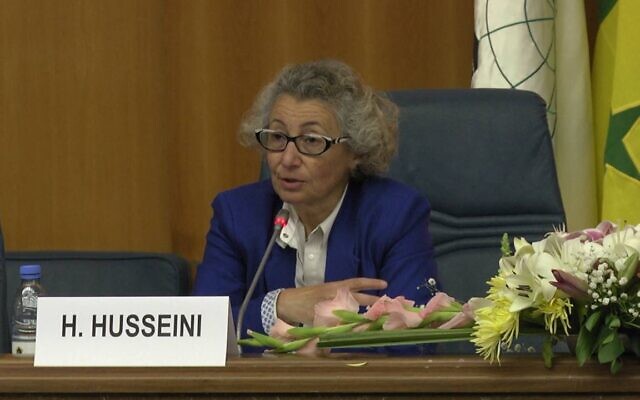
Beilin and Husseini said their confederation scheme is based on the Geneva Initiative, a peace plan that was officially launched by Beilin and Yasser Abed Rabbo — a minister in the Palestinian Authority — in 2003. An expanded version was released in 2009.
Their proposal has yet to be endorsed by Israel or the Palestinian Authority, but Beilin and Husseini think it has the potential to generate peace and stability and end generations of bloodshed.
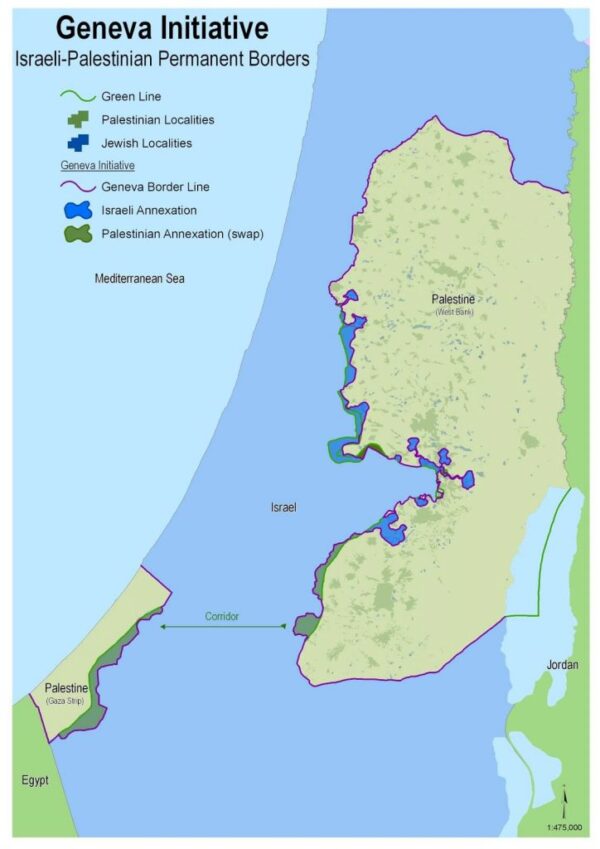
It is based on United Nations resolutions and on the Clinton Parameters, which were unveiled by U.S. President Bill Clinton in 2000. It is also inspired by peace plans introduced by the Arab League in 2002 and by the United States and European powers in 2003.
It would be implemented in three stages over several years, said Husseini. During the first year, Israel and the Palestinian Authority would settle issues ranging from the demarcation of borders to the Palestinian refugee problem. The Palestinians would then proclaim statehood. This would be followed by 13 months of talks expected to culminate with confederation.
Beilin said their plan is far more realistic than the “deal of the century” produced by the then U.S. president Donald Trump.
Beilin acknowledged that the current war pitting Russia against Ukraine has diverted attention away from Israel’s conflict with the Palestinians, and that years may elapse before the international community can focus on it again. But in the meantime, he warned, it could explode into violence once more.
Beilin and Husseini have presented their plan to United Nations Secretary General Antonio Guterres and U.S. Deputy Secretary of State Wendy Sherman.
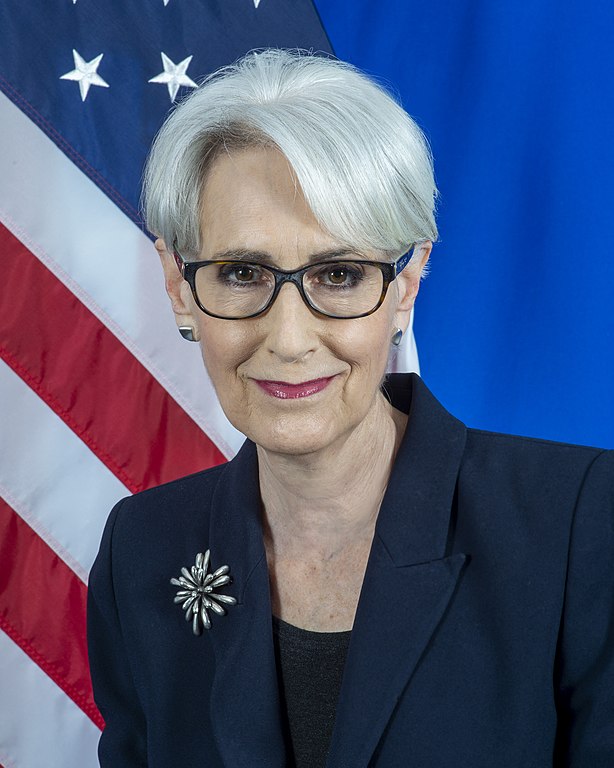
Husseini has received “very good feedback” from Palestinians in the West Bank, but she conceded that Palestinian youths generally favor a one-state solution because they are frustrated with the current political impasse.
The last round of direct Israel-Palestinian peace negotiations, sponsored by the United States, took place from 2013 to 2014, but ended without an agreement.
She added that the Palestinian Authority, headed by President Mahmoud Abbas, is currently reviewing their confederation plan.
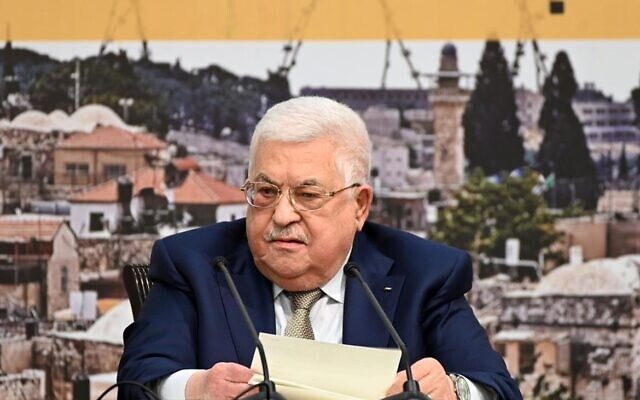
Husseini said that a two-state solution is the “one and only option” for the Palestinians. “A one-state solution is not really a solution,” she said. “We want to end the refugee crisis and draw clear and final borders.”
In keeping with the substance of the Geneva Initiative and the Clinton Parameters, their plan calls for an almost complete Israeli withdrawal from the West Bank, mutual land swaps, and a Palestinian state encompassing up to 96 percent of the West Bank. Israel would maintain a temporary military presence in the Jordan Valley.
Israel would annex settlement blocs close to its present borders. These settlements would contain 80 percent of the Jewish settler population. Settlers who wish to remain in Palestine could become permanent residents of the new Palestinian state.
Jerusalem would be shared. West Jerusalem would be Israel’s capital. East Jerusalem would be the capital of Palestine.
The Palestinian refugee issue would be resolved by the dispersal of the refugees to Palestine and overseas destinations. Israel would accept a symbolic number of refugees.
Neither Beilin nor Husseini mentioned the Gaza Strip, which is governed by Hamas, an Islamist organization which rejects Israel’s existence.
In Beilin’s view, confederation is a realistic solution despite the layers of mutual suspicion and animosity on both sides. “There is a lot of hatred, but it can be overcome,” he said. “Real attitudes will not change in a day. It will be a gradual process.”
